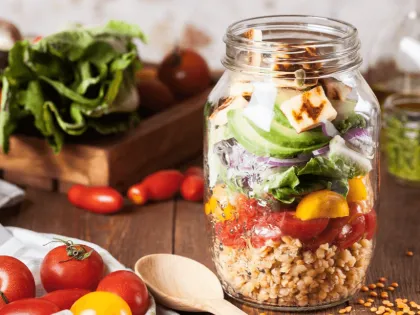Next week marks the start of exams, which for many people can be a tiring, not to mention stressful time of year.
To get you through, we’ve got 5 tips to help you take advantage of the power of food to fuel your body, stimulate your brain and gain the nutrition edge as you prepare for your exams!
Eat breakfast
That’s right, no substituting coffee for breakfast this time! Studies show eating breakfast can help you maintain concentration and improve memory, including recall and recognition.
Taking ten minutes to eat breakfast will help keep you focused while you study and also help reduce irritability just before an exam. Grab a bowl of cereal and fuel your body as well as your brain. For some breaky inspiration, take a look at our quick and easy recipes.
Don’t skip meals
Did you know that skipping meals can lower your serotonin levels? Serotonin is a soothing brain chemical that helps to stabilise mood, feelings of well-being, and happiness.
Studies have shown that carbohydrate rich foods (bread, cereal, pasta, rice, fruit, yoghurt) can increase serotonin levels. Try to include fruit smoothies, soup, cheese on toast, or yoghurt and fruit into your diet. To beat fatigue eat small, regular meals and snacks throughout the day.
Eat the rainbow
Stress - the ‘fight or flight’ response you get when you’re under pressure that can often leave you feeling a bit nauseous, or like you have ‘butterflies’ in your stomach.
Stress can deplete our vitamins and minerals, including B vitamins such as folate, antioxidants (vitamins A, C and E), and zinc. You can increase your daily intake of these nutrients by eating more colourful fruits and vegetables, including oranges, berries, melons, carrots, pumpkin, broccoli, spinach, capsicum and avocado as well as nuts, rice, oats vegemite, yoghurt, milk, lean meat, chicken and seafood.
Take the Healthy Eating Quiz to see where you can improve your diet!
Get moving
That’s right, it’s time to get out of that dark room and breathe in some fresh air! Fight fatigue by swapping your books for joggers and getting some exercise into your day.
This will keep the blood and nutrients circulating to your brain, giving you the boost you need to keep going! Make sure you get a good night’s sleep before exam day, and give yourself plenty of time to refuel before putting your brain to the test.
Drink more water
Did you know that 60% of your brain is water? While it’s important to always stay hydrated, it’s even more so during exams to make sure your brain is functioning at full capacity. To keep your hydration and performance at peak levels, aim to drink around 2L a day (roughly 8 glasses).
While caffeine in coffee, cola, chocolate and tea can make you feel alert, too much can make you feel anxious, irritable and disturb your sleep patterns. It can also stimulate your kidneys to pass fluid, meaning extra trips to the loo, which is pretty inconvenient during an exam!













